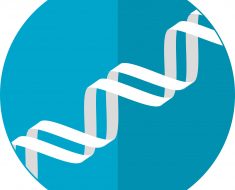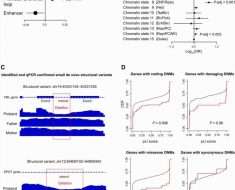Patients with cancer can benefit from germline genetic testing, but many patients who live in rural and underserved areas may face problems involving access.
A new study found that community oncologists who received peer coaching from genetic experts were more likely to order germline genetic testing for eligible patients with cancer.
“This study highlights the fact that education around genetic screening and testing for hereditary cancer is critical,” said Susan Klugman MD, FACOG, FACMG, clinical cancer geneticist at the Montefiore Einstein Cancer Center in New York City, who was not involved in the research. “As a specialist in genetics at an academic medical center, I see daily the importance of ensuring physicians, both in-house and in community settings, are up to date on the latest guidelines, research, and genetic testing options.”
The study was published online March 6 in JAMA Network Open.
Genetic testing for cancer remains underused, especially for patients in rural and underserved areas. For instance, only 1 in 5 patients with pancreatic cancer underwent germline genetic testing in 2020, despite National Comprehensive Cancer Network (NCCN) guidelines recommending that “every patient with a pancreatic cancer diagnosis or family history of pancreatic cancer” should undergo such testing, the authors note.
To determine whether community oncologists who received peer coaching would order more germline genetic tests for their patients with cancer, researchers organized a pilot project collaboration between the cancer genetics service at Fred Hutchinson Cancer Center in Seattle and an affiliated community-based cancer center, the Olympic Medical Cancer Center in Sequim, Washington.
The study was split into two phases between August 2020 and January 2021. Phase 1 focused on observing clinical practices, and phase 2 incorporated peer coaching from cancer genetics experts.
“We operated a little bit like a remote genetics tumor board,” said corresponding author Marianne Dubard-Gault, MD, medical director of the clinical cancer genetics and high-risk service at the Fred Hutchinson Cancer Center. Having someone on site day to day to review cases for testing eligibility as well as to “reassure patients, suggest the genetic testing order, get the samples when patients were already there, track results, and share with MDs was helpful.”
The study included 634 patients (mean age, 71 years; 64.5% women). Overall, 353 patients (55.7%) had breast cancer, 184 (29%) had prostate cancer, and others had ovarian, colon, or pancreatic cancer; 218 (34.4%) had a family history of cancer.
The researchers found that 24% of patients in phase 1 (100 of 415) and 22% in phase 2 (48 of 219) met NCCN criteria for genetic testing. Among the 148 patients eligible for genetic testing, 105 (70.9%) did not undergo it.
Of the 29 patients who underwent testing in phase 1, 20 (69%) underwent germline genetic testing, and nine (31%) underwent somatic testing. Of the 25 patients who underwent genetic testing in phase 2, 23 (92%) underwent germline genetic testing, and underwent (8%) underwent somatic testing.
Use of germline genetic testing increased by 23% between phase 1 and phase 2, though the difference was not significant (P = .06). Use of germline genetic testing was highest among patients with pancreatic cancer (21%) and ovarian cancer (17%).
A “peer coaching intervention appears to have helped bring the conversation about hereditary testing back to the forefront of patients’ care,” the authors conclude. “Although the increase was not statistically significant, it represented a marked improvement in access to genetic testing for patients and relatives over a short study period.”
Still, nearly 71% of patients who met modified NCCN criteria did not undergo genetic testing, which “highlights a need for continued partnership and a potential need to simplify testing guidelines,” the authors add.
That is why finding ways to increase patient access to genetic information and testing remains an important goal.
“Peer coaching when paired with the expertise, tools, and resources of a cancer genetics program has great potential for expanding patient awareness and access to genetic testing,” said Katherine A. Schneider, MPH, LGC, senior genetic counselor at the Dana Farber Cancer Institute in Boston, who was not involved in the study. “A combined program or network of peer coaching and more traditional genetic counseling is what will be most beneficial to patients as they navigate the decision to undergo genetic testing.”
JAMA Netw Open. Published online March 6. Full text
For more news, follow Medscape on Facebook, Twitter, Instagram, and YouTube.
Source: Read Full Article





